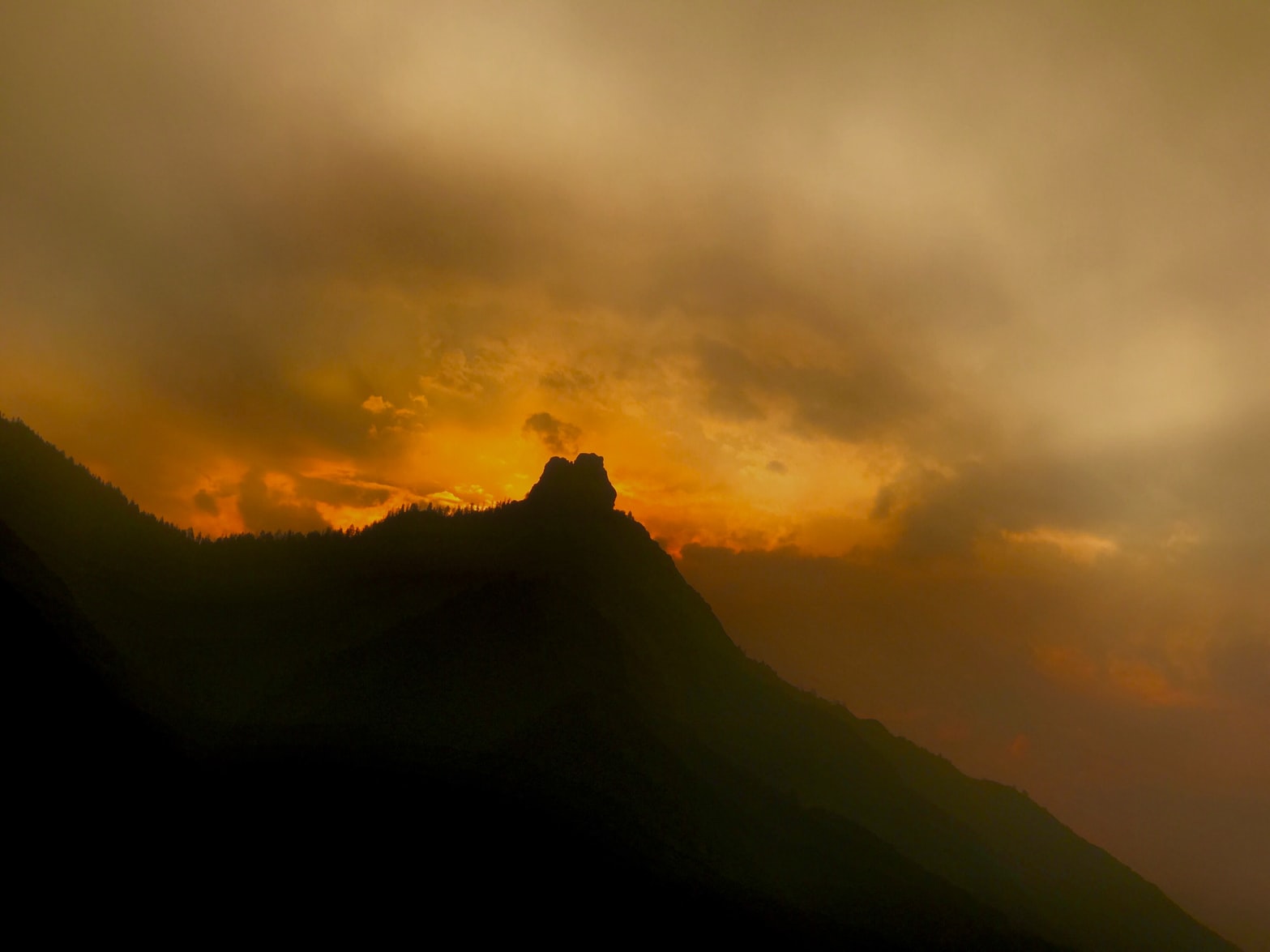The heat dome, wildfires, and water conflicts affecting the West may be variations on a “new normal,” but the slapdown they represent is certainly newsworthy.
Scrolling through social media this week, I came across an acquaintance’s lament about mainstream media coverage of the topics that matter, or in his opinion, don’t. The heat dome and drought currently blanketing the western half of North America is, according to him, a non-event filling the media, to the detriment of more important issues. I balked at first, because of course it’s newsworthy when roads are buckling in Oregon, a town in British Columbia burns to the ground, and in California, farmers and Native Americans are competing for water. How does such a huge, life-altering event fail to meet anyone’s arbitrary standard for newsworthiness?
After some thought, though, I conceded that he may have a point.

This is not to say that the West’s climate problems are insignificant. Far from! We’re talking “Biblical plague” levels in Oregon and Montana, where swarms of grasshoppers are wiping out crops and pasture after the drought set up the perfect conditions for the ravenous insects to thrive.
The heat dome is particularly suffocating in the Pacific Northwest, a region so temperate that cities weren’t built with 120°F (49°C) heat in mind. When it reached 105° in Everson, WA, the concrete on State Route 544 expanded while the asphalt covering it softened into goo and separated, making travel all but impossible. Electrical cables melted on a streetcar in Portland, OR, causing a lapse in service at the same time that their light rail system went down, copper cables sagging in the heat.
Temperatures topped 121°F in Lytton, a town of 1,000 people in British Columbia, Canada, attracting “heat tourists” who came for the heat dome experience in an area where June highs are typically in the 70s. Fifteen minutes after the first flames were spotted last Wednesday, Lytton was consumed by fire. Residents were lucky to escape with their lives. It’s just one more wildfire in a particularly dry fire season, and western Canada’s fires are burning so intensely that they’re creating their own lightning-rich pyrocumulus thunderstorms.
Meanwhile, Californians can no longer count on having enough water. Teviston, CA, residents have been traveling to shower or find water after the pump in their town’s only working well broke down. The drought and persistent heat dome make everything worse, increasing the danger and likelihood of wildfires across the region. Fights are brewing over control of Klamath River water further north, with militia-backed farmers on one side, worried about their livelihoods and economic prospects in uncertain times, facing down Indigenous Yurok and Karuk people who depend on the salmon which spawn in the river to support their traditional economy.
So, why would these stories – and more – be considered less than newsworthy, even as homes, jobs, and even lives are on the line, and we must adapt to the coming changes or die as a result?
Because we have chosen this. Moreover, we knew it was coming.
There isn’t much anyone can say about climate change that hasn’t already been said. We’ve been hearing about it for years. Making some weak gestures toward averting it was even a bipartisan effort until Al Gore’s climate-heavy Presidential campaign forced the opposition into a platform of denial and dismissal, perfect prey for oil industry lobbyists who knew the climate crisis was coming but thought their investments were more important than, well, [gestures broadly at everything].
Sure, scientists didn’t expect record temperatures like those under the heat dome, or last year’s reading of 100.4°F in the Arctic Circle, for decades to come, maybe even the year 2100. Knowing that it would happen if we didn’t change, though, meant we were perfectly willing to let future generations suffer this permanent disaster for our convenience. The changing climate is no longer newsworthy, it’s just normal. That we’re reaping the whirlwind we expected to dump on our babies and those not yet born? Priceless.
Related: Whose Fault is Climate Change?
Sources:
Pacific Northwest Continues to Bake Beneath ‘Heat Dome’
Oregon’s Buckled Roads and Melted Cables Are Warning Signs
Canada Hunts For Survivors Of A Fire That Destroyed A Small Town
How to Live in a Climate ‘Permanent Emergency’
Amid mega-drought, rightwing militia stokes water rebellion in US west
‘A scourge of the Earth’: grasshopper swarms overwhelm US west
Village of Lytton, B.C., evacuated as mayor says ‘the whole town is on fire’
Fire clouds spark 710,117 lightning strikes in western Canada in 15 hours
A California Town Has No Reliable Running Water During A Heat Wave
Water crisis reaches boiling point on Oregon-California line
How to sabotage climate legislation? An Exxon lobbyist explains.
How climate change ‘loads the dice’ for heat waves
Canada is a warning: more and more of the world will soon be too hot for humans


Join the conversation!